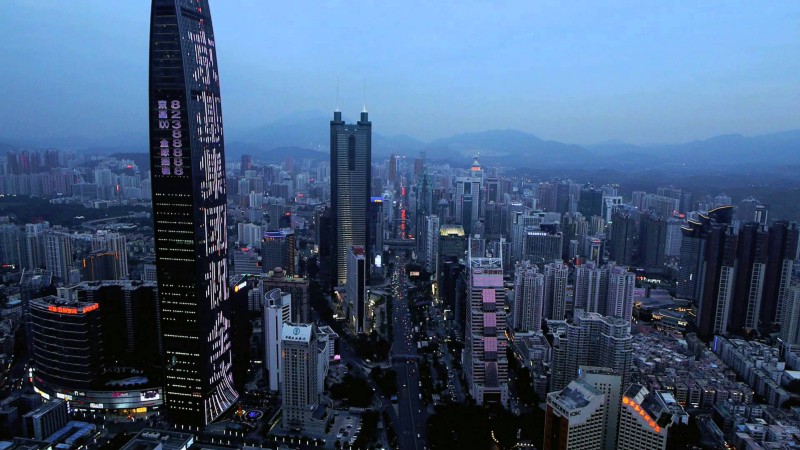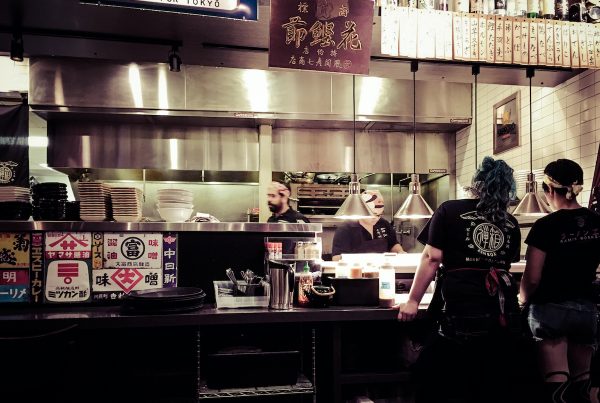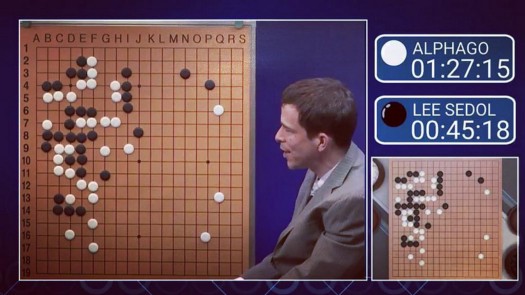
Hint: It’s not in America or Europe.
Earlier this week I watched an amazing documentary by Wired about the rise of Asia’s silicon valley hotspot in Shenzhen in China.
This one small city, which came into prominence just two decades ago and doesn’t have a lot of history or culture of its own, is now the breeding ground for technology innovation in the East. Shenzhen is the crystal ball in which you can gaze at the future, even more than Silicon Valley. And the most fascinating thing about it is that this city breeds hardware innovation, not just software innovation. Any tech founder will tell you that hardware startups are 10x harder. Well guess what, Shenzhen sucker-punches that equation out of the ring altogether, and a very different equation plays out here — one that is not seen anywhere else on the planet.
This article is about three things:
- What makes Shenzhen’s tech landscape formidable
- What makes it so damn brutal
- Why you should beware of Shenzhen even if you don’t have anything to do with the place
Nitbit (in case you didn’t know):

A bunch of fishing villages neglected by the world
Over the last 25 years, Shenzhen has evolved from THIS:

The most modern city in Asia at the moment
To this:
First the ‘formidable’ part
Shenzhen is the colosseum where the strong find glory and success, while the weak find pain, blood and unceremonious death. The competition is cruel and if you’re not quick and strong enough, you will be quickly forgotten. But there’s also no better place to flex your muscles and level-up your game than Shenzhen.
Shenzhen is formidable because of the insane opportunities it gives you for development, and how it makes you tougher. If you want to start a hardware company with a new product idea, Shenzhen shows three incredible traits which would make it irresistible for you:
- Speed
- Scale
- Help from clever people
What do I mean by speed? Well, for starters you can find almost *any* hardware component you want, and build *any* product you can imagine, in a fraction of the time it would take you elsewhere. There’s an entire industry dedicated to make sure that if something takes you over a month to prototype in the USA or anywhere else, you can probably get it done in Shenzhen within a week.
As for scale, it is obvious — you are in the manufacturing hub of the East. For a medium- to high-tech product, Shenzhen (and nearby) is probably the first and last place in the world you would look to find a manufacturer.
Thirdly, Shenzhen is a city full of tinkerers and hackers who love building things to solve problems. AI engineers and software developers in China are comparable in skill to the best of the world, even though their engineering culture isn’t as mature as the one you see in the West. But that is slowly changing too, as people from top tech companies like Google, Facebook, Amazon etc have been moving to Chinese companies over the last few years and emerging as the tech leaders the country desperately needs.
It is also actively working towards nailing the two remaining big factors that make it a hotbed for innovation — courage to pursue original ideas, and empathy for the consumer. You know, most of the common Chinese youth are not fond of taking big risks in their career. Being a young startup founder here is obviously considered more adventurous than opening a shop which fixes broken iPhones.
And you know the stereotype of how Chinese products don’t last long and often have faults in their design, right? That’s what I mean when I say ‘empathy for the consumer’. If you care more about the customer’s delight than building something cheap which just works, you can then start to create a lasting brand that people stick to (something championed by emerging companies like Xiaomi). This realization is also beginning to be more widespread — look at products like WeChat. I honestly think that given its achievements and design, it is the greatest mobile app in the world.
I’m sure you can see how Shenzhen is so formidable.
Now, what makes the place brutal is the crucial piece I haven’t mentioned yet — Robin Hood.
The Robin Hood Culture
When the first big manufacturers came to Shenzhen, people who worked in those companies for years figured out that they could ‘borrow’ the technology and lessons, leave their company and start one of their own to compete with their employer. China doesn’t really enforce IP regulations —I suspect the reason is because they are anyways hard to enforce, and they prevent the mushrooming of clone companies that bring prices down and employ many more people than one monopolistic company ever can.
THAT is the “new socialism” which I believe is prevalent in China. China isn’t a socialist country in the typical sense — heck, it has one of the most intense consumerist cultures I’ve ever seen. Instead, socialism takes shape in the idea of “only the government has the right to hold a monopoly on anything”.
These clone companies helped add to the economic growth that China needed. Of course having strong IP rules help foster innovation — but in a culture where being too innovative/risk-taking has anyway been a taboo for many years, they don’t have to worry too much about discouraging innovators. So it has been a level playing field between innovator and follower.
This ‘just borrowing the tech’ movement has been given the name of ‘shanzhai’, originally synonymous with the phenomenon of imitating and producing counterfeit products.
Today, local people are instead calling it open source activism — saying that sharing is caring, and that when you release your knowledge and share it with everyone else, you are moving the whole plane forward. Some people in fact say they’re proud of having the ‘spirit’ of shanzhai, and consider tech companies like Apple as villainous corporations that gain monopolies on technology simply by being the first to file a patent. They don’t care who was “first” — the only thing that matters is who survives. You can also see this in China’s venture capital landscape — companies can raise millions of dollars at the drop of a hat, and try to outbid each other by bribing their customers with free stuff. The consumers win the most.
Now combine this with the previous factors.
This means, while you can implement your ideas faster than anywhere else on Earth — so can your copycats.
It is not uncommon for a hardware startup in Shenzhen to have a copycat in the city within just weeks of unveiling your product to the public — and it’s possible that both of you release the product to the market at the same time — and it’s even possible that the locals beat you to launch. Clever bastards can look at your product in a video, reverse-engineer your idea and produce their own version of it, maybe even at a cheaper price!
Don’t believe me? Take a look at this link:
https://www.quora.com/How-strong-is-China%E2%80%99s-copying-ability/answer/Kevin-D-Aslan?srid=ik7B
Furthermore, there’s no shortage of venture money in China, so if your idea is really worth a dime, your copycats won’t have any problems raising money either.
So, how do you even survive in such an environment where you can’t differentiate your hardware product? Well, back to the basics of SOFTWARE startups!
The battle here is not about who came up with the best ideas, it’s about execution. Agility, marketing and customer loyalty. Now I apologize if I sound like a management consultant “thought leader”, but only for a few lines.
Startups in Shenzhen have to innovate faster, target the right customers at the right price, and really double down on a great customer experience. Unless you build a brand, at least in Shenzhen your product will end up in a basket of 5 other imitations. And your little company could die a quick, sudden death.
You can see examples of this excellent strategy at work all over the place. Consider Apple — considered a leader in branding. You know that you can buy an iPhone copycat in China, down to the last detail, for a fraction of the price? HOWEVER, Apple is still the most aspirational brand in China. People love their products, and they look down upon fake iPhones. Some folks have literally sold kidneys to buy the latest iPhone/iPad.
This hardware philosophy is not limited to success in China
You can see this happen in any market. When you can’t compete based on the novelty or price or specs of your product, you just have to build a brand. Beats by Dr Dre, arguably the most popular maker of headphones in the USA, can successfully sell its headphones for $199. Do you think that the headphones are somewhat super special? I don’t know for sure. But a comprehensive teardown of the headphones reveals that its cost of production and shipping can easily be estimated to be less than $40. The reason is that the founders have used their personal connections and design philosophy to create a lasting brand in the same way as Apple has.
And finally – if you’re part of a hardware startup anywhere in the world, be careful about Shenzhen. If you have EVER shown off your product or your idea to the public, there’s a chance that some guy from Shenzhen has seen or heard of it, and already started working on his own version. Yes, they travel around the world and they like to know what’s going on and where.
Personally, here’s the lesson I would draw from this story: don’t put all your eggs in a single basket of product innovation. Someone will copy it. Think in slightly longer terms and differentiate yourself in other ways than just the product. Do something extra which is so special that others can’t steal or copy it.


